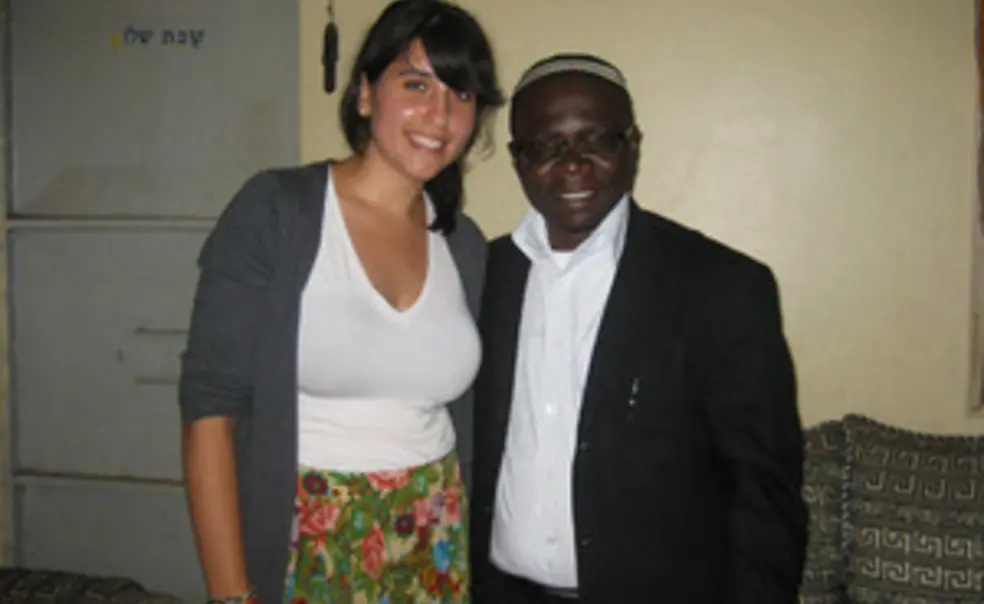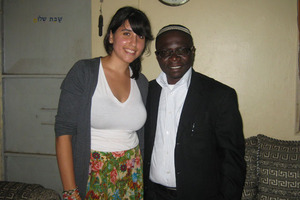Summer research: Exploring Judaism in Africa
Nava Friedman '13, left, with Rabbi Gershom Sizomu in Uganda. (Courtesy Nava Friedman '13)
When most people think about Judaism, eastern Africa probably does not enter their minds. Nava Friedman ’13 thinks differently, though. In the summer of 2010, Friedman participated in an educational service trip in Uganda, run by the American Jewish World Service, and visited a community in Nabugoye that has many synagogues and Jewish schools. The local Jews are called the Abayudaya (literally “the Jewish people,” in the local language, Luganda).
Friedman knew that if she could visit the community again, she would jump at the chance. Princeton gave her that opportunity through the Martin A. Dale Awards, which give $4,000 to sophomores to pursue independent projects over the summer.
Prior to visiting Nabugoye from the middle of June through early August, Friedman’s goals were to learn about the community’s religious life through conversation and interviews. “I was hoping to compile these interviews as individual testimonies, and use them as a basis for a possible performance piece,” she said. “I also wanted to be useful to the community through some sort of volunteer work.”
Now that her trip is over, Friedman said she is “really satisfied” with the outcome. “People were open and interested in talking about their beliefs, practices, and struggles practicing Judaism in rural Uganda,” she said.
After completing the interviews, Friedman said that she may compile the voices into a written document – something that could easily translate into a thesis or junior paper for the religion major, who also is pursuing a certificate in African studies.
The lifestyle of the Abayudaya is both similar and different to that of American Jews, Friedman said. “They observe the Sabbath, observe kashrut [the laws of keeping kosher], recite the traditional prayers, learn the Hebrew Bible and observe Jewish holidays,” she said. “Most of them call themselves Conservative Jews. … However, they also have some unique practices – for instance, reciting some of the service in Luganda, as opposed to Hebrew. [Their rabbi] will tell you that they are not Conservative, despite his training. They are Abayudaya, in a sense – their own denomination.” Because the Abayudaya maintain ties with other Jewish groups in Ghana and Kenya, Friedman said, “it is likely that this form of Judaism will spread.”
“I think the main, cool thing about this community is the way it’s still developing – it’s just so new,” Friedman added. “There were no missionaries bringing them this religion from the West. It’s based on a homegrown reading of the Bible, with the outside influence coming only later and without a universal hold.”
For the volunteer aspect of her trip, Friedman taught Hebrew and English at the local primary school and high school. The project was not without challenges. “I was attempting to teach a third language [Hebrew] in a second language [English] with a very basic vocabulary,” she said. “I would translate a word and then realize that they didn’t know what the translation meant.”
Beyond teaching the students, a large aspect of her trip was simply interacting with others.
“Everyone was friendly and eager to talk about almost anything,” Friedman said. “This was honestly the single greatest part of my trip – the opportunity to simply live in a village, making friends, getting to know the intimate details of daily life, is a rare experience.”














No responses yet